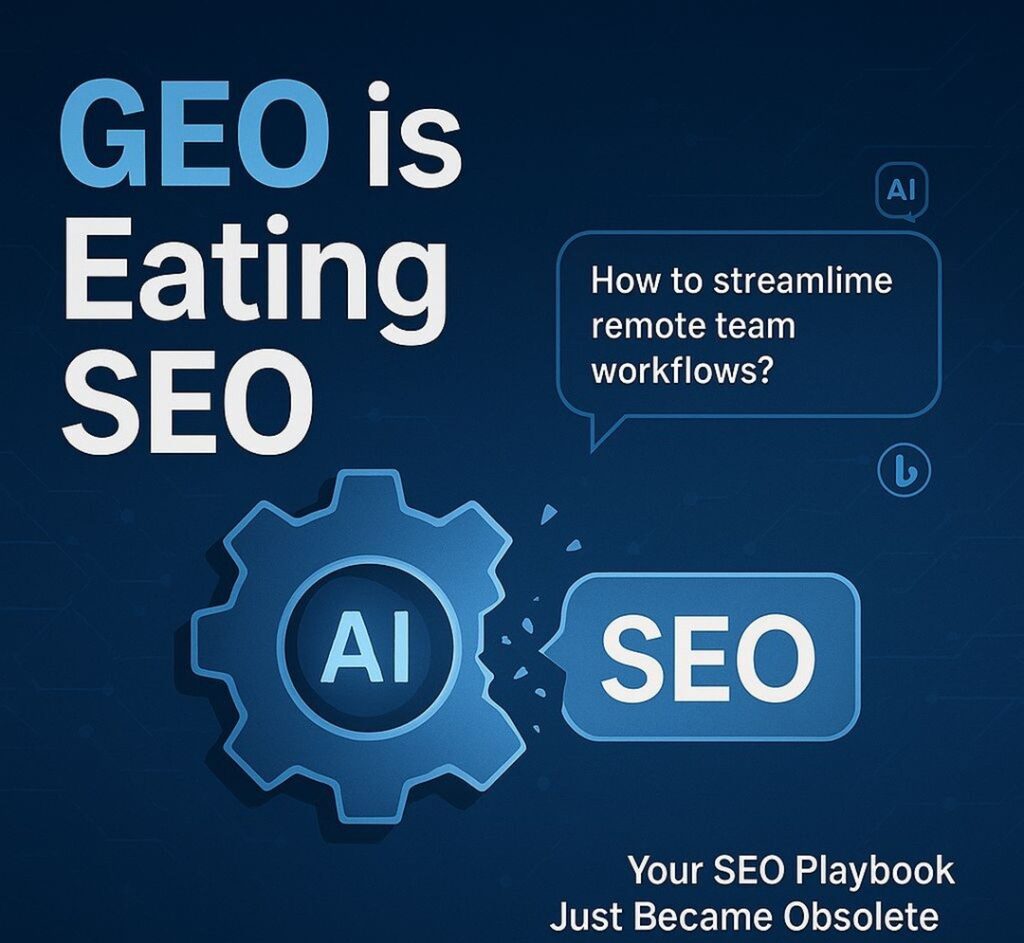
GEO Is Eating SEO (And Why That’s Actually Good News)
Google Search Console is showing queries with 7+ words getting 800+ impressions. These aren’t human searches—they’re AI systems mining for answers (Source: Wisp. blog analysis, 2025).
Welcome to the era of Generative Engine Optimization (GEO)
The game has fundamentally changed:
Traditional SEO: “How do I rank #1 for ‘project management software’?”
GEO Reality: “How do I ensure AI recommends us when someone asks about streamlining remote team workflows?”
A cybersecurity company learned this the hard way. Despite excellent SEO, negative Reddit discussions led ChatGPT to call them “a notable contender, but still a smaller player” (Source: Wisp case study, 2025).
Here’s what actually works now:
1. Multi-source authority building
Wise controls 4 out of 10 results for key queries by creating an ecosystem of “independent” comparison sites
2. AI-specific content structure
One idea per paragraph. Short sentences. Highlighted statistics. It’s not dumbing down—it’s making content AI-parseable
3. The Bing renaissance
ChatGPT uses Bing. Yet 90% of companies ignore it. Implement Index Now for real-time indexing
The uncomfortable truth: We’re in a land-grab moment.
OpenAI hasn’t monetized yet. Once ads enter AI assistants, organic visibility becomes exponentially harder. Companies building their GEO strategy now will lock in advantages that could last years (Source: OpenAI release cycles analysis).
Stop optimizing for keywords. Start optimizing for AI comprehension.
Who else is seeing these 7+ word queries in their GSC?
GEO SEOStrategy AISearch DigitalMarketing

